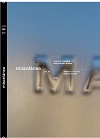Memory Matters: Alice Munro’s Narrative Handling of Alzheimer’s in "The Bear Came over the Mountain" and "In Sight of the Lake"
DOI:
https://doi.org/10.26754/ojs_misc/mj.20148781Palabras clave:
Alice Munro, Alzheimer, Anagnórisis, Elipsis, Tiempo narrativoResumen
Este ensayo analiza dos relatos recientes de Alice Munro, "The Bear Came Over the Mountain" (Hateship, Friendship, Courtship, Loveship, Marriage, 2001) y "In Sight of the Lake" (Dear Life, 2012). Ambos relatos intentan ficcionalizar la enfermedad de Alzheimer, aunque de formas diferentes. Ambas narraciones comparten el hecho de que, al trazar los intentos de los personajes por hacer frente a una fragilidad cada vez más evidente de la memoria y a la disolución del yo, consiguen implicar al lector en ese mismo proceso de deterioro. A través de su hábil manejo del tiempo narrativo, la ambigüedad lingüística y los finales epifánicos -incluida, en un caso, la anagnórisis-, Munro nos ofrece una muestra de lo que se debe sentir al ser consciente del desmoronamiento del yo causado por el Alzheimer. Munro no sólo narra, tan hábilmente como siempre, el declive gradual asociado a la enfermedad, sino que también consigue implicar a los lectores en ese proceso de declive gradual y desorientación, jugando con nuestras expectativas, señalando la naturaleza indecidible del lenguaje y de la propia narrativa, y echando por tierra todas las certezas que habíamos atesorado hasta entonces.
Descargas
Referencias
ALLEVA, Richard. 2007. “Away from Her: Cheating to Be Faithful”. Commonwealth (June 15): 22-23.
AWANO, Lisa Dickler. 2013. “An Interview with Alice Munro”. Virginia Quarterly Review: A National Journal of Literature and Discussion 89 (2): 180-184.
BALÉE, Susan. 2002. “America the Innocent”. The Hudson Review 55 (2): 301-311.
BERAN, Carol L. 1998. “The Luxury of Excellence: Alice Munro in the New Yorker”. Essays on Canadian Writing 66: 204-231.
BERTHIN-SCAILLET, Agnès. 2010. “A Reading of Away from Her, Sarah Polley’s Adaptation of Alice Munro’s Short Story, ‘The Bear Came Over the Mountain’”. Journal of the Short Story in English 55. <http://jsse.revues.org/index1120.html>. Accessed January 12, 2014.
BROOKS, Libby. 2011. “Alzheimer’s Disease is Compelling in Fiction Because it is So Cruel in Life”. The Guardian (September 29). <http://www.theguardian.com/commentisfree/2011/sep/29/alzheimers-fiction-cruel-life-death>. Accessed January 24, 2014.
COX, Alisa. 2013. “‘Age Could Be Her Ally’: Late Style in Alice Munro’s Too Much Happiness”. In May, Charles E. (ed.) Critical
Insights: Alice Munro. Ipswich, Mass: Salem Press: 276-290.
DUFFY, Dennis. 1998. “‘A Dark Sort of Mirror’: The Love of a Good Woman as Pauline Poetic”. Essays on Canadian Writing 66: 169-190.
DUNCAN, Isla. 2011. Munro’s Narrative Art. Basingstoke; New York: Palgrave Macmillan.
ENRIGHT, Anne. 2012. Review of Dear Life by Alice Munro. The Guardian (November 8). <http://www.theguardian.com/books/2012/nov/08/dear-life-alice-munro-review>. Accessed December 30, 2013.
FOX, Patrick. 1989. “From Senility to Alzheimer’s Disease: The Rise of the Alzheimer’s Disease Movement”. Milbank Quarterly 67 (1): 58-102.
GAINES, Atwood D., and Peter J. Whitehouse. 2006. “Building a Mystery: Alzheimer’s Disease, Mild Cognitive Impairment, and
Beyond”. Philosophy, Psychiatry, & Psychology 13 (1): 61-74.
HAUN, Beverley. 2010. “Too Much Happiness, Too Much Grief”. Canadian Literature/Littérature Canadienne: A Quarterly of Criticism and Review 206: 169-170. <http://proquest.umi.com/pqdweb?did=0000002156641771&Fmt=3&clientId=43168&RQT=309&VName=PQD>. Accessed January 12, 2014.
HERSKOVITS, Elizabeth. 1995. “Struggling over Subjectivity: Debates about the ‘Self’ and Alzheimer’s Disease”. Medical Anthropology Quarterly 9.2: 146-64.
HOWELLS, Coral Ann. 1998. Alice Munro. Manchester: University of Manchester Press.
—. 2003. “Review of Hateship, Friendship, Courtship, Loveship, Marriage by Alice Munro”. Canadian Literature/Littérature Canadienne: A Quarterly of Criticism and Review 178: 160-161. <http://gateway.proquest.com/openurl?ctx_ver=Z39.88-2003&xri:pqil:res_ver=0.2&res_i d = x r i : l i o n & r f t _ i d = x r i : l i o n : f t : a b e l l:R01697485:0>. Accessed January 12, 2014.
KRASNER, James. 2005. “Accumulated Lives: Metaphor, Materiality, and the Homes of the Elderly”. Literature and Medicine 24 (2): 209-230.
LORENTZEN, Christian. 2013. “Poor Rose: A Review of Dear Life by Alice Munro”. London Review of Books 35 (11) (June 6): 11-12. <http://www.lrb.co.uk/v35/n11/christianlorentzen/poor-rose>. Accessed January 12, 2014.
MCGILL, Robert. 2008. “No Nation but Adaptation ‘The Bear Came over the Mountain’, Away from Her, and What It Means to Be Faithful”. Canadian Literature/Littérature Canadienne: A Quarterly of Criticism and Review 197: 98-111. <http://gateway.proquest.com/openurl?ctx_ver=Z39.88-2003&xri:pqil:res_ver=0.2&res_i d = x r i : l i o n & r f t _ i d = x r i : l i o n : f t : a b e l l:R04107087:0>. Accessed January 12, 2014.
MITCHELL, David T and Sharon L. Snyder. 2000. Narrative Prosthesis: Disability and the Dependencies of Discourse. Ann Arbor: Michigan UP.
MUNRO, Alice. 1999. “The Bear Came Over the Mountain”. The New Yorker. <http://www.newyorker.com/archive>. Accessed November 23, 2013.
—. 2001. “The Bear Came Over the Mountain”. Hateship, Friendship, Courtship, Loveship, Marriage. Toronto: McClelland and Stewart. iBook digital file.
—. 2012. “In Sight of the Lake”. Dear Life. New York: Vintage. 217-232.
POLLEY, Sarah (dir.) 2006. Away from Her. Capri Films.
ROY, Wendy. 2009. “The Word is Colander: Language Loss and Narrative Voice in Fictional Canadian Alzheimer’s Narratives”. Canadian Literature/Littérature Canadienne: A Quarterly of Criticism and Review 203: 41-61. <http://gateway.proquest.com/openurl?ctx_ver=Z39.88-2003&xri:pqil:res_ver=0.2&res_ i d = x r i : l i o n & r f t _ i d = x r i : l i o n : f t : a b e l l:R04298562:0>. Accessed January 23, 2014.
SSKLOVSKY, Viktor. (1917) 1965. “Art as Technique”. In Lemon, L. and M. J. Reiss. (eds.) Russian Formalist Criticism: Four Essays. Lincoln: University of Nebraska Press: 3-24.
SIMON, Linda. 2014. “Battling the ‘Invincible Predator’: Alzheimer’s Disease as Metaphor”. The Journal of American Culture 37:1: 5-15.
VENTURA, Héliane. 2010a. “Introduction to Special issue: The Short Stories of Alice Munro”. Journal of the Short Story in English 55 (Autumn 2010). <http://jsse.revues.org/index1057.html>. Accessed January 23, 2014.
—. 2010b. “The Skald and the Goddess: Reading ‘The Bear Came Over the Mountain’ by Alice Munro”. Journal of the Short Story in English 55 (Autumn 2010). <http://jsse.revues.org/ index1121.html>. Accessed January 23, 2014.
Descargas
Publicado
Número
Sección
Licencia
Derechos de autor 2014 Begoña Simal

Esta obra está bajo una licencia internacional Creative Commons Atribución-NoComercial 4.0.


